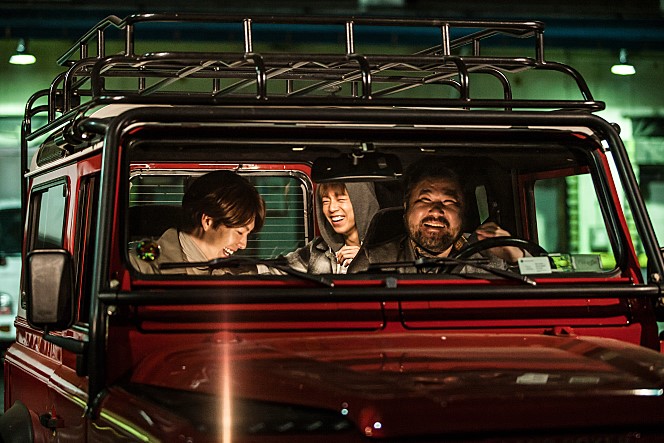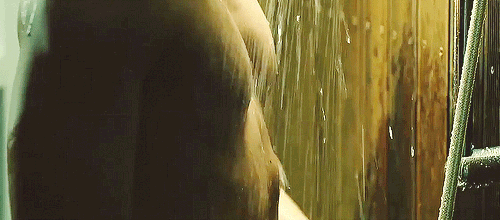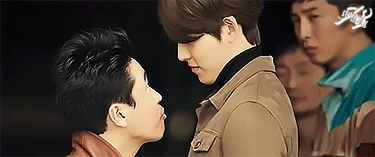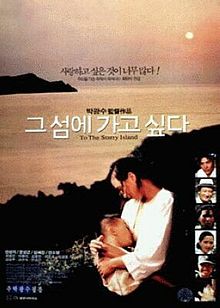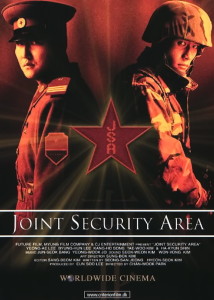5 Korean Movies to Watch Over Spring Break
Are you one of the many who are about to enter their spring break? Or are you already in it? Regardless, if you’re bored and looking for some entertainment over your break without having to leave the comfort of your own room, check out one or all five of these Korean movies. Whether you’re into romance, comedy, action or looking for all three in one, I’ve got a movie for you! Even if you’re not in Korea, you will still probably be able to find these movies online. Websites like Pirate Bay normally have a huge selection of different movies to watch, so it might be worth checking on there. To get onto that website, you may need a private proxy (click here to find one). Hopefully, that website will have these movies, allowing you to watch them in the comfort of your own home.
1. A Millionaire’s First Love
Starring actor Hyun Bin, known for his roles in dramas such as Secret Garden and most recently Hyde, Jekyll and Me, and actress Lee Yeon-hee of East of Eden and Gu Family Book, A Millionaire’s First Love is built around a sorrowful love story. Kang Jae-kyung, played by Hyun Bin, lost both his parents in a terrible car accident when he was younger, which left a hefty scar in his heart and mentality. Jae-kyung’s wealthy grandfather took guardianship of him after the accident and with the typical rich kid syndrome; he grew up to be arrogant and snotty. Jae-kyung was set to inherit his grandfather’s fortune, under the condition that he transferred to a new school in Gangwon Province, to focus on his studies and graduate. Choi Eun-hwan, played by Yeon-hee, is a vivacious and spunky orphan, who attends the same high school that Jae-kyung is sent to.
No matter what Jae-kyung does and where he goes, he always runs into Eun-hwan; not only is she their class president at school but she’s also the cashier at a convenience store that he frequents and she also works at their local gas station and even delivered gas to his broken down car once. Little does Jae-kyung know though, that this isn’t all coincidence but they both actually share a deep past together, a past in which he’s tried extremely hard to block out. Eun-hwan clearly remembers and knows exactly who Jae-kyung is, but he on the other hand doesn’t have a clue as to who she is or as to why she keeps sticking to him like glue. I suppose hanging around him all the time must’ve worked out, because as time passed, they grew closer and they eventually grew to love one another; only for Jae-kyung to discover that Eun-hwan’s days are limited. But what’s a Korean movie without someone being diagnosed with a terminal illness?
What’s going to happen to these two young lovers? And what exactly is their history? You’ll have to watch the movie to find out!
Also on KultScene: 10 Epik High Songs To Get You Ready For Their North American Tour [UPDATED]
2. A Moment to Remember
A Moment to Remember is based on the Japanese television show, Pure Soul. It follows the unexpected love story of Su-jin, played by actress Son Ye-jin, known for her roles in The Classic and Summer Scent, and a man named Chul-soo, played by actor Jung Woo-sung, known for his roles in Athena: Goddess of War and Padam Padam…The Sound of His and Her Heartbeats. Su-jin and Chul-soo both come from two different worlds; you have Su-jin, this upbeat, bright, always perky and happy girl, who’s lived her entire life doing things her way, and who also happens to be the daughter of a CEO of a construction firm, and Chul-soo, a quiet and reserved guy, who’s an aspiring architect, that works at one of Su-jin’s father’s sites as the construction foreman.
Once she spotted him on her father’s work sight, she knew she had to have him. Due to her outgoing personality, Su-jin wasted no time in trying to court Chul-soo; and Chul-soo didn’t put up too much of a fight either, seeing how he was just as interested in her as she was in him.
Although Su-jin’s father disapproved of their relationship, that didn’t stop them from moving in with one another and eventually getting married. Their love for one another was undeniable and everything in the world seemed perfect, as if nothing could ever go wrong. That is, until Su-jin is diagnosed with Alzheimer’s disease. Su-jin is in denial; she is nervous and feels burdened that she’ll eventually forget her beloved husband one day, but with the help and unconditional love from Chul-soo, the two fight through the oncoming obstacles, together.
Did Su-jin end up forgetting Chul-soo? Did they stay together? Everything from their first meeting to the beginning of their relationship was unorthodox and completely unconventional, but if things were meant to be, if it’s true love, then they’ll always fall into their rightful place.
3. 200 Pounds Beauty
Are you tired of those typical sad love stories? If so, here’s a refreshing comedy for you! 200 Pounds Beauty is about an overweight girl, Kang Han-na, played by Kim Ah-joong, who undergoes a number of extreme plastic surgeries to become a pop sensation. Han-na doesn’t want to get the procedures done just so that she can be considered beautiful, but she wants them done so that they can help boost her self-esteem and confidence, so that she can finally live what she deems as a normal life.
In order to live up to her new look and to prevent anyone from finding out who she is, Han-na creates a new identity for herself, she is now a Korean-American from California named Jenny. In an attempt to make Han Sang-jun, played by Joo Jin-moo, fall in love with her, Jenny auditions to be a ghost vocalist for an old rival, Ammy, in order to get close to Sang-jun. To everyone’s surprise, Jenny’s voice resembled one of someone else that they used to know, Han-na, but without anyone detecting that it was in fact her, she was able to score her own record contract and now she would no longer have to live in anyone else’s shadow. With this new identity and body, not only is she a star on the rise and receiving love from the public, but she’s also finally gaining the interest and love of Sang-jun.
Ammy is certain that something fishy is going on with the disappearance of Han-na and with the new and sudden arrival of Jenny. In order for her revival in the industry, Ammy tries everything to seek Han-na out. Sang-jun had already turned his back on her, so she was desperate more than ever. Those around Jenny also begin to question the identity of this mysterious woman who appeared before them, with the eventual discovery that Jenny is Kang Han-na the entire time.
What was Sang-jun’s reaction to finding out that he’s been lied to by Han-na? And whom was he actually falling for, Han-na or Jenny?
4. Spellbound
I’m a big Son Ye-jin and Lee Min-ki fan, so when I found out they filmed a movie together, I knew it was a must watch. Spellbound is a horror romantic comedy, based around a street, turned big time, magician, Ma Jo-goo, played by Lee Min-ki, and Kang Yeo-ri, played by Son Ye-jin, who has the unfortunate ability of seeing ghosts. These ghosts continuously seek out Yeo-ri in order to receive closure, and until she helps resolve the issue for them, they’ll always hang around her. Due to this, she’s unable to have a social life and isolates herself from the outside world because she’s scared those around her will be harmed. This includes only having phone calls with her best friend in which she hasn’t seen in ten years.
Her quiet life takes a surprising turn when she encounters Jo-goo. He is completely unaware of the crazy occurrences that go on in her life, but insists on making her be a part of his big magic show. Although she’s a part of the staff and is constantly around other people, she wants nothing to do with them once her shift is over. After declining to go out for many company dinners, Jo-goo finally drags her out for a drinking session and discovers her (drunken) and unique personality. The more he see’s her, the more he’s intrigued by her; he wants to know everything about her but Yeo-ri is terrified of letting anyone get close to her, since it might put them in danger. As their feelings blossom for one another, Jo-goo discovers the difficult and lonely world that Yeo-ri’s been living in, and wants to be there to protect her, although the thought of being followed by these ghosts terrifies him out of his wits.
Do you think Jo-goo will stick around long enough to help Yeo-ri chase these bad guys out of her life, or will he be chased out before he gets the chance to even come close enough?
Also on KultScene: EXID ‘Ah Yeah’ Music Video & Song Review
5. Secretly, Greatly
Over the last couple of years, there’s been a number of films based around North Korean spies, but Secretly, Greatly is probably the most light hearted out of all of them. The film is an action packed comedy and drama, starring Kim Soo-hyun who plays Lieutenant Won Ryu-hwan, which is his North Korean alias but his new identity in South Korea is Bang Dong-gu. He’s dubbed as the top agent in North Korea with a full set of skills; he’s fluent in 5 different languages and has a remarkable ability of reading people. He’s disguised as a village idiot while in South Korea. Park Ki-woong plays Rhee Hae-rang/Kim Min-su, son of a high ranking North Korean official, who’s in the south as a singer wannabe and Lee Hyun-woo plays the role of Rhee Hae-jin, the youngest North Korean secret agent in history, who is disguised as a south Korean high school student.
The three are sent to South Korea in hopes of unifying Korea. They’re set to acculturate the small town, quiet lifestyle in South Korea, while awaiting their orders from the North. One of them waited months, while another has been waiting years to receive any orders. Due to the extensive wait period, these spies gradually start to get used to their life as ordinary neighbors in their small towns. Dong-gu grew very fond of the grandmother that he works for; he even had a crush on a neighboring girl. Dong-gu and the other agents are aware that there are others like them in South Korea, but there hasn’t been a reason for them to meet or bump heads.
One day, Dong-gu, Min-su and Hae-jin are assigned the secret and great mission that they’ve been eagerly awaiting. This is it, this is what they’ve been waiting for, it was right in front of them; until a sudden change in events, the Second Battle of Yeonpyeong, put a halt on the long awaited mission. The North is promised financial aid from the South, under the condition that they’re given the names, location and rank of the North Korean spies that are active in the South; the North must turn in their spies in order to reap the benefits. To prevent their spies from falling into enemy hands, the North orders that Dong-gu, Min-su and Hae-jin abort their mission and take their own lives before the government gets to them. Coming from the North, it’s instilled in these spies to forever be loyal to their one and only leader and country, therefore, they must do whatever it takes to protect their beloved country.
Will these agents heed their new orders or will they turn their backs on those who have turned their backs on them?
I don’t know about you guys, but I’m usually drawn to the love orientated and sappy it took us so long to finally be together but unfortunately one of us is going to die Korean movies (and dramas). Although I’m fully aware that I’ll get emotional and probably cry in all the scenes, I still watch them anyway! I’m not crazy with gruesome scenes so I tend to stay away from the intense action movies. Most of the time, the ones I watch have very predictable synopses and I’m usually able to uncover the ending a fourth of the way into the film, and if I like it, I’ll continue watching it and if it becomes too much then I’ll stop. Is this the same for you?
Have you already seen these movies? If not, what are you waiting for?! Share your thoughts in the comment section below and be sure to subscribe to the site and follow us on Facebook, Twitter, Instagram, and Tumblr to keep up with all of our posts.

